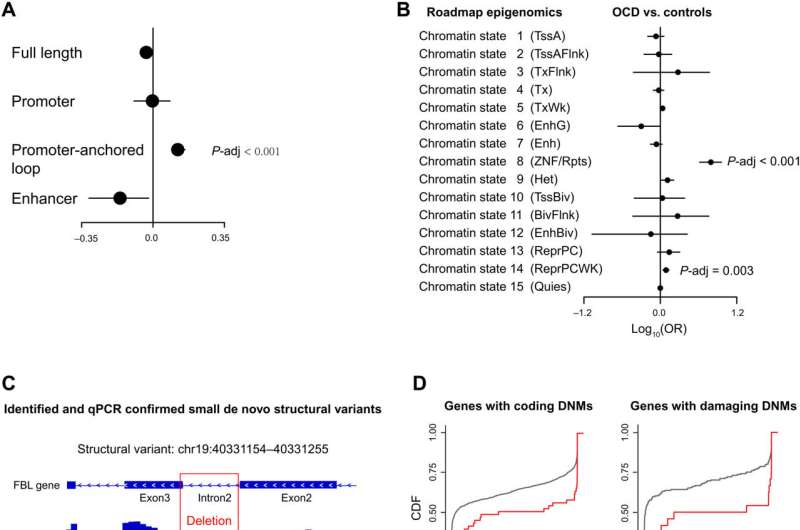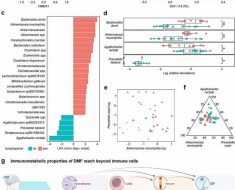
A team of researchers from Shanghai Jiao Tong University and Novogene Bioinformatics Institute reports an association between de novo genetic mutations and obsessive-compulsive disorder (OCD). In their paper published in the journal Science Advances, the group describes their genetic studies involving people with OCD and their parents.
OCD is characterized by excessive behavioral traits, anxiety and stress. In recent years, scientists have found that its roots are genetic, though it is not considered to be an inheritable condition. Instead, it arises in people who have first-generation gene mutations, known as de novo mutations. In this new effort, the researchers sought to learn more about such mutations by conducting a genetic study of people with the disorder and their parents. To that end, they enlisted the assistance of 53 families consisting of two parents and at least one offspring with OCD. Those with the disorder were between the ages of 18 and 65. The researchers conducted whole-genome sequencing on tissue samples from all of the volunteers. The study once again demonstrated that the disorder is not inheritable—the parents did not have genetic evidence of OCD, though their offspring did.
The researchers found commonalities in the genes of people with OCD—similar de novo mutations associated with the disorder. In all OCD volunteers, the mutations were related to chromatin loops, which prior research has shown play a major role in transcription, in which DNA code is written into RNA. More specifically, the researchers found that the de novo mutations were present in a higher proportion of promoter-anchored chromatin loops—a certain part of genes. They also found the mutation in histone marks, which are genetic regions also involved in gene transcription. They suggest that chromatin modification genes are able to regulate neurotransmitter genes and that problems with such regulations due to mutations can lead to disturbances in the brains of people with OCD.
Source: Read Full Article





